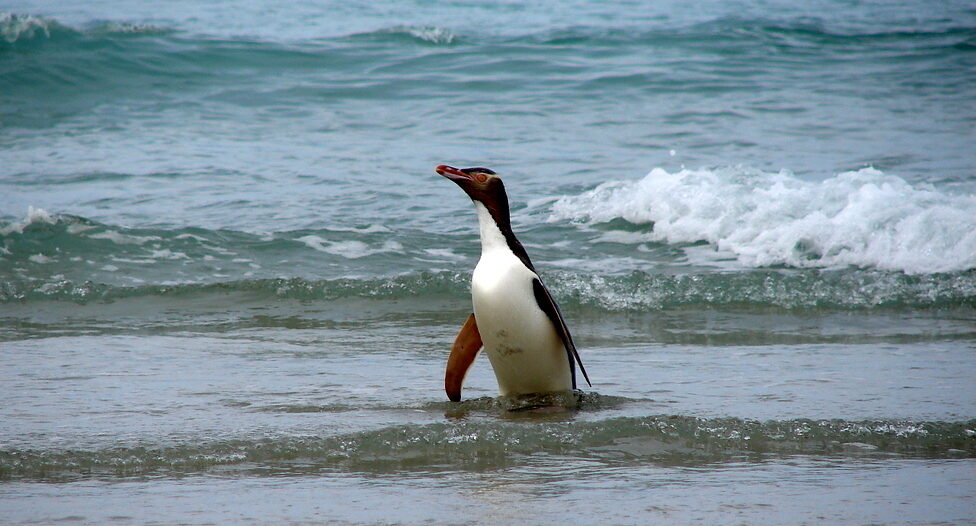An emergency set net fishing ban to protect yellow-eyed penguins around the Otago Peninsula begins at 5 pm today.
The three-month ban follows a voluntary closure by set-net fishers last week and earlier calls for a ban during the breeding season of hoiho – the 2024 Bird of the Year.
The SMC asked experts to comment.
Professor Brett Gartrell, Professor in Wildlife Health and Director of the Wildbase Research Centre at Massey University, comments:
“It is excellent news to see the government responding to the threat that inshore set nets pose to survival of hoiho on the Otago peninsula. The hoiho population on the South Island of New Zealand is under pressure from a range of causes with its population falling to fewer than 150 breeding pairs. The conservation of this species is a collaboration between government departments, tangata whenua, academics and community groups and there have been strong calls for more action by the government for some years now. The temporary 3-month protection of this ban gives the species a chance for the coming breeding season, but longer term solutions are needed and across a much wider geographic area if we are serious about protecting the breeding areas for hoiho and other marine species.
“This short term ban is to be praised, however, the actions of this government that have reduced the protection for seabirds and other marine animals more generally should be remembered, including the decision to removing public access to onboard camera footage from commercial fishing vessels. We know that surveillance of the commercial fishing fleet is the only way we get accurate reports of bycatch. Even MPI acknowledge that “Experience overseas and in New Zealand is that monitoring of fishing by observers or cameras generally leads to more accurate reporting. Accurate data enables a more transparent and responsive fisheries management system and supports better understanding of the health of our marine ecosystems.” In this quarter only 21% of footage collected from commercial fishing vessels was reviewed.
“If fisheries want to maintain their social licence then greater public accountability, and longer term plans for sustainable fishing are required. This ban is a response to three hoiho being killed in set nets in the Otago region between 1st April to 30th June 2025. In that same period at least 765 seabirds were captured by commercial fishers including 57 albatross.”
No conflicts of interest.
Dr Thomas Mattern, Department of Zoology, University of Otago; and Oceania representative of the Global Penguin Society, comments:
“The emergency set-net ban around the Otago Peninsula is a welcome step, but it highlights how difficult it has been to act decisively to protect hoiho / yellow-eyed penguins.
“While restricting set-netting in this small area reduces the immediate bycatch risk for a few breeding adults, it does not address the wider threats these penguins face. After fledging, young hoiho disperse along the Otago coast and into the Canterbury Bight, where they remain vulnerable to entanglement outside the protected zone. Protecting only part of their range will not be enough to halt their decline.
“Decades of monitoring, including satellite and GPS tracking, have consistently shown that fisheries interactions are a key pressure on hoiho. To suggest that starvation and predation are the main causes of mortality overlooks the complex interplay between fisheries and food availability. For example, changes in prey size and composition, some of which may be linked to fishing activity, disproportionately affect chick survival. There is no evidence that predation at sea is a significant issue.
“The urgency of this situation has been known for years. Our 2017 population study already indicated that hoiho on the mainland were edging toward extinction. Subsequent tracking work from 2019 to 2022 – much of it conducted by Otago students – has provided detailed evidence of penguin foraging ranges, yet it has taken years for this information to filter into management decisions. Given the critical state of the population, a more precautionary approach is warranted, including stronger restrictions on set-netting across the wider east coast of the South Island.
“At this point, only bold measures will give hoiho a chance to persist as a mainland species.”
